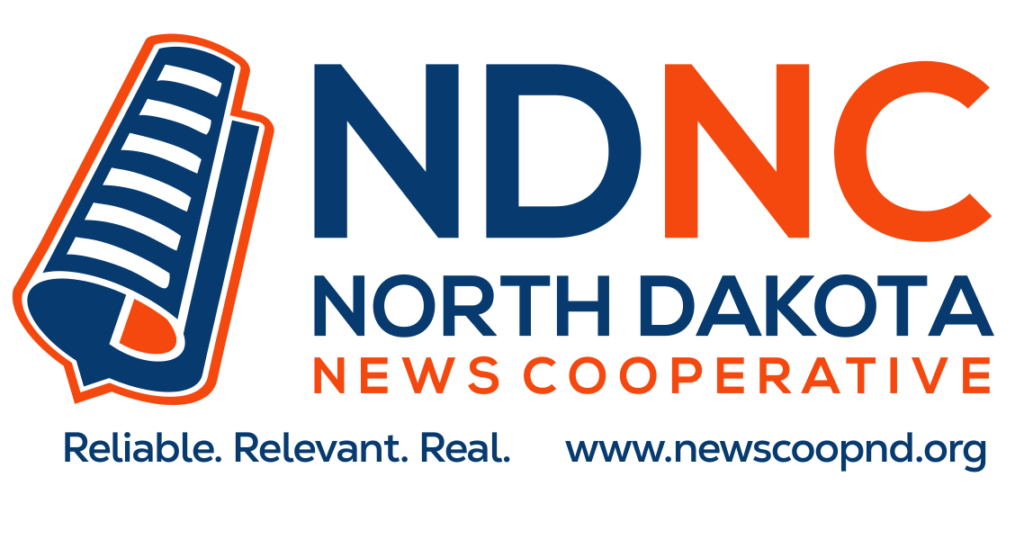News Based on facts, either observed and verified directly by the reporter, or reported and verified from knowledgeable sources.
North Dakota Growth Fund a ‘capital multiplier’ for local entrepreneurs
 ScreenshotPavewise’s weather data gathering device GroundTruth in use at a construction site in Bismarck in 2024. (Photo provided by Byrce Wuori.)
ScreenshotPavewise’s weather data gathering device GroundTruth in use at a construction site in Bismarck in 2024. (Photo provided by Byrce Wuori.)
$89 million of $600 million in local Legacy Fund investment rolled out so far
There has been some concern among people watching the Legacy Fund about whether these investments will all go to companies in the state.
Furst said that the Growth Fund’s investment policy statement makes clear that all capital put into the program has to go back to North Dakota companies.
“The diligence is disciplined and thorough to put it mildly,” she said.
Furst said the fund is really focused on ag tech, UAS tech, and the energy sector, and what the drivers of the state economy will be going forward.
One focus is also to ensure investments are made across the state, so that they aren’t all going to major cities like Fargo.
“I’m a class B kid from western North Dakota, I know what an oil rig looks like, and so for us what has been impactful is it is not just industry diversification and strategy diversification, but also geographic diversification,” Furst said.
Capital multiplier
The initial $89 million in commitments by the Growth Fund has lead to another $136 million of investments into companies in the state.
“So when we talk about the growth fund being a capital multiplier, that’s what that means,” Furst said. “The number I look at the most that I think is, you know, the proof in the pudding, is what have we committed versus capital that’s been invested into North Dakota companies.”
Furst said 50 South Capital’s mandate is twofold – to make money for the state of North Dakota and build the supply chain for the state’s entrepreneurs by activating private markets and access to capital.
Jake Joraanstad, CEO and founder of Bushel, has been another beneficiary of the in-state investment program and also a mentor to other entrepreneurs like Wuori. Bushel has developed agricultural accounting systems for farmers tracking scale tickets and for ag retailers to better track sales by providing accessible, real-time data.
Joraanstad said around 1,000 farms are using his tracking tools and around 100,000 farmers across the country use other management tools the company has created.

“One of the challenges in North Dakota has been this idea of raising capital,” Joraanstad said. “When I first started in 2016, 2017, I had to leave North Dakota to go find where that capital might come from.”
While there were some angel investors in North Dakota there were always gaps in the next level up where millions in investment were potentially needed, he said.
“There’s always been a gap in North Dakota in that arena, until this Growth Fund, where the ability to write a multi-million dollar check from Lewis and Clark that happens to have North Dakota capital behind it kind of changed the game for us,” Joraanstad said.
While entrepreneurs sometimes need to learn some things the hard way, he said, they shouldn’t have to learn everything the hard way. Building a funding environment like the state has started with the Growth Fund is about adding experience across the board, with both entrepreneurs and investors building upon what they learn to pass along to the next cohort.
“That’s resulted in the biggest flywheel effect for entrepreneurs in our region,” Joraanstad said.
Another entrepreneur who has benefited from the Growth Fund is Grand Forks-based Matt Dunlevy, co-founder of Aethero. Dunlevy, like Wuori, went through Gener8tor’s accelerator program last year and benefited from the access to mentors and investors on how to make the next step up.
Aethero uses drones, or unmanned arial systems (UAS), to gather data on buildings to measure things like energy efficiency, to check to see if buildings are built to spec, or if older buildings have structural integrity issues, as well as for monitoring energy infrastructure from grids to oil and gas facilities.
“We still thank our lucky stars that we were in that first cohort,” Dunlevy said. “It helped us in terms of syndicating different investors and maturing our company by years, and just understanding what could be down the line if we execute correctly.”
Dunlevy said “it was a boot camp unlike any other I’ve been through when it comes to business,” and that going through the process has been an X factor for the company.
“We wouldn’t be where we are without them and we derive a lot of satisfaction from the successes we’ve partnered with Gener8tor along the way,” Dunlevy said.

